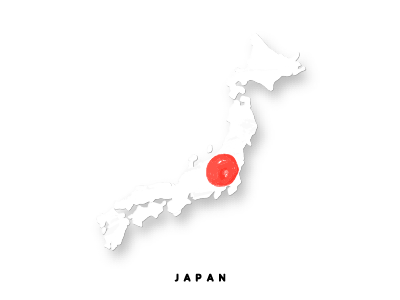

The entry into force of the EU-Japan economic partnership agreement as well as the prospect of the Olympic Games in Tokyo in July 2020 strengthen business opportunities for French companies. How can you take advantage of this momentum by shipping wines safely to Japan, while respecting the regulations specific to this destination?
The Economic Partnership Agreement between the European Union and Japan, signed on July 17, 2018, entered into force on February 1 , 2019 . It is an important signal in favor of open, mutually beneficial international trade. And offers new opportunities for European producers, especially for beef, pork, cheese, processed products, wines and spirits.
This agreement includes commitments to be respected : right to regulate, action for the climate, high standards in terms of environmental protection and work, etc. It also ensures the protection of French productions such as Champagne or Roquefort.
According to customs, this is the most ambitious free trade agreement concluded by the European Union with a third country, which gives rise to a free trade area whose wealth produced amounts to nearly a quarter of global GDP, thus representing significant opportunities for French exporters. And simplifications in terms of the certificate of origin...
Merchandise exported to Japan may enter the territory of a third country provided that it does not undergo any operation other than those necessary to ensure its preservation or the affixing of marks to meet domestic requirements of Japan (transport, storage) .
The product must originate in the European Union within the meaning of the agreement. To acquire EU preferential origin, the rules of origin of the agreement must be satisfied.
To benefit from the reduced or zero customs duty, the importer must apply for the preferential regime when the goods arrive in Japan. The EU-Japan agreement provides for a hybrid system with two possible modalities: the issuance of a certificate of origin or knowledge of the importer.
The economic partnership agreement between the EU and Japan abolished customs duties but a tax remains to be paid. This VAT is 10% of the value of the goods.
The Olympic Games will be held in Tokyo from July 24 to August 9, 2020. A boon for the wine trade but which requires anticipating shipments. Customs will effectively be closed during the Olympic period, thus paralyzing the market. For winemakers who wish to ship to Japan, plan to do so before May 2020.
EXPORTING WINE TO JAPAN: A GOOD FOR WINEGROWERS?
Japan is France's sixth largest trading partner (outside the European Union). Nearly 8,000 French companies export to Japan - airbags, cheese, pastries, wine, ski equipment, oil equipment, safety shoes, sunflower seeds (source: European Commission). Japan is the second largest luxury market in the world, after the United States.
Wine has become a very popular product among the Japanese, especially French wines. Japan is the 2 nd market in Asia-Pacific for the consumption of imported wines , behind China. And the 3rd for total consumption behind Australia and China.
Consumption of red wine traditionally dominates consumption of still wine in Japan, with more than two-thirds of bottles consumed (68% in 2015) (source: foodloire)
Japan imports 2.7 Mhl of wine per year, including around 480,000 hl from France. (source: FranceAgrimer – Cniv study).
The Japanese are educated in wine; they like to discover and share. They appreciate valuable goods and are willing to spend a lot on high quality products. They also form a loyal, reliable target who appreciates frank relations. So many qualities that make this country a territory of opportunities for French exporters.
SENDING WINE TO JAPAN: WHAT OBLIGATIONS?
The regulatory obligations vary according to the use that will be made of the wine on the territory (samples for salon, personal consumption, professional sales).
Download via your eShipping extranet :
> Our "Japan" country sheet with all the useful information for a shipment in good and due form.
> Our “Exporting to Japan” checklist so that you don’t forget anything during your shipment.
Photo credit: © Lauritta - stock.adobe.com
Copywriting: Aurélie Jeannin